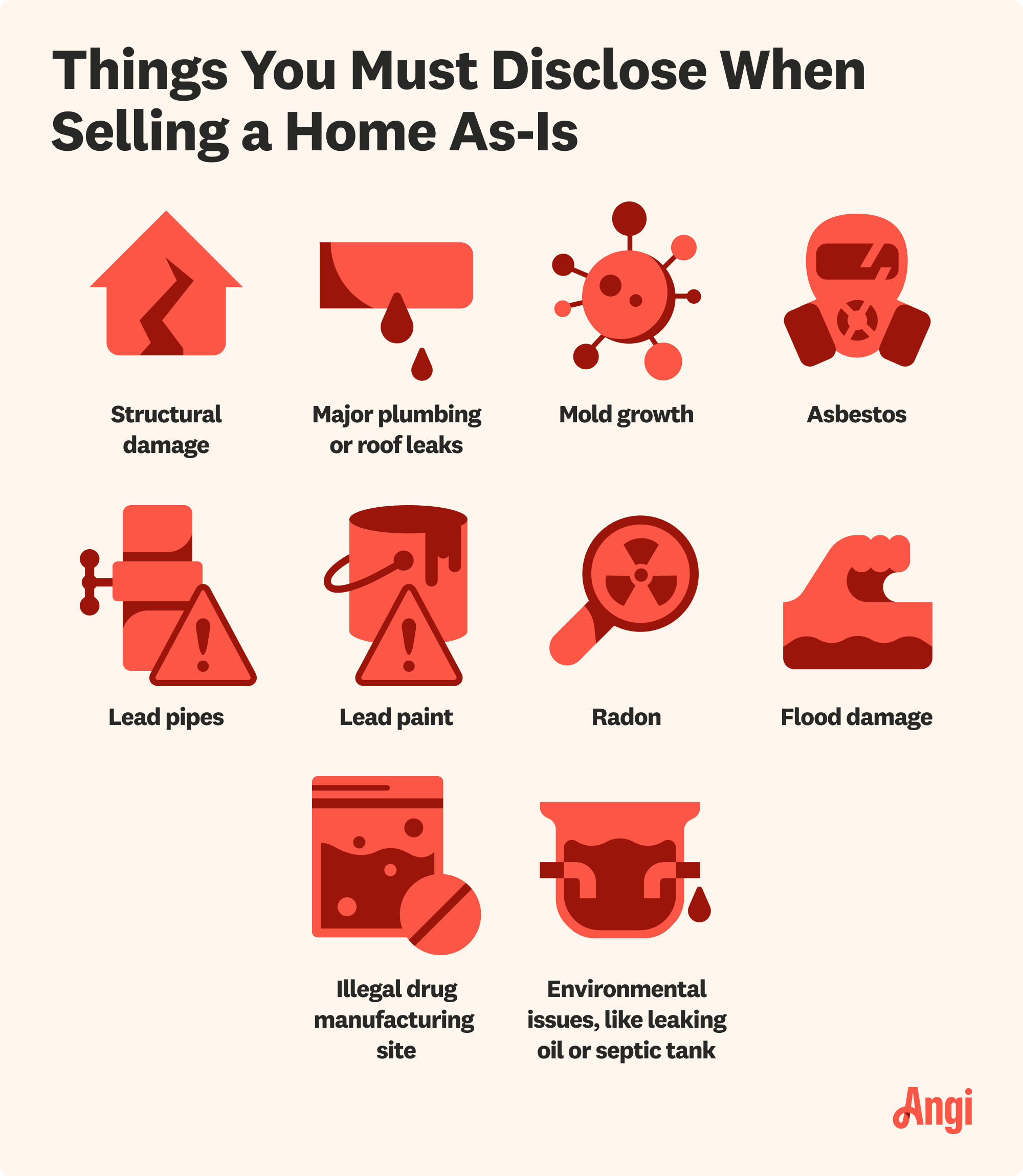
An attic inspection can confirm structural components, insulation, and home systems are all in order. Learn about attic inspection costs and what to know.
Have your buyer waive the inspection contingency, and you’re set


Selling a house in as-is condition means you won’t be responsible for any repairs pre-closing.
Note that you’re selling as-is in your listing, and make sure to disclose any deficiencies to buyers.
Be prepared to accept a lower offer than if you carried out repairs before listing.
Most real estate transactions include a thorough inspection of the property that allows buyers to back out if their local home inspector uncovers damage or another major issue. Inspections can benefit both buyers and sellers, but skipping the inspection can also be beneficial. In this guide, we’ll discuss if you can sell a house as-is without an inspection, why you might want to, and how to do it while still getting top dollar for your home.
Selling a house as-is just means that you, as the seller, are not willing to carry out any repairs before closing. Instead, the buyer is purchasing the home as it sits. Selling as-is without an inspection means you sell the home in its current conditions without the promise or obligation of making repairs, and the buyer also agrees not to make the sale contingent on the results of an inspection.
Even if you sell as-is, you’re still legally required to disclose any major issues that could affect the safety of the home or the property value, including things like structural damage, flood damage, and environmental issues.


Selling a house in as-is condition and having your buyer forgo an inspection comes with two primary benefits.
First, you won’t be responsible for carrying out repairs on the property, which could mean avoiding thousands or even tens of thousands of dollars before closing. If you’ve inherited a home or want to sell a property you’ve been renting without having to put money into it first, selling as-is without an inspection is a good way to insulate yourself from repair costs.
Second, inspections take time, and most real estate purchase agreements provide the buyer with an inspection contingency period of seven to ten days. During this time, they can conduct a property inspection and back out of the deal due to a failed inspection. This can delay the sales process, as can having to carry out the repairs yourself before closing. Selling as-is without any type of home inspection speeds up the process significantly, sometimes taking weeks off of the timeline. This might be ideal if you need to get rid of the property quickly.
There are a few key steps you can take to sell a house as-is without an inspection, avoid headaches, and get the highest sale price possible.
First and foremost, you should be prepared for a different group of interested buyers than if you sold a home the traditional way. Many buyers will see the words “as-is” and assume there are known issues with the house, causing some to pass on the property altogether. You’re more likely to get investors and first-time homebuyers looking for fixer-uppers. These types of buyers may be willing to pay less than others, especially if they believe they’ll have to deal with repairs post-closing, so you should be prepared for lower offers.
Having your buyer forgo an inspection—especially if it’s because there are known problems—may also limit a buyer’s financing options. If you know there are roof leaks, plumbing leaks, or structural issues, you’ll have to disclose those, and most traditional lenders won’t lend against the home. You’ll be cutting out a significant portion of the buyer pool even if the term “as-is” doesn’t scare buyers away. Reducing competition may drive the price lower, too.
While you can absolutely sell a house as-is without an inspection, you don’t have to do so to get the benefits of selling as-is. Make sure your buyer waives the home inspection contingency period, but feel free to let the buyer carry out an inspection while the deal moves forward. They’ll have no recourse to back out because of something in the inspection, but they’ll be more likely to move forward with the offer in the first place if they know they can get a home inspection to prepare for any repairs after closing.
You can even consider paying the cost of a home inspection before listing to speed up the sale once the property is on the market. This could give buyers some peace of mind without delaying the sale, and it could prevent issues if the buyer needs an inspection to get homeowner’s insurance.
When you market your property, make sure the property description notes that it’s an as-is sale but also highlight the positives. Mention things like an open floor plan, new appliances, and a new roof to entice buyers to look more closely.
From average costs to expert advice, get all the answers you need to get your job done.

An attic inspection can confirm structural components, insulation, and home systems are all in order. Learn about attic inspection costs and what to know.

Drone roof inspection costs vary depending on the roof’s size, complexity, and material. Use this guide to budget for a drone roof inspection.

If you’re buying a home, having an inspection offers reassurance that it’s in good condition. How much a home inspection costs varies depending on the home's size, age, condition, and location.

A home insurance inspection is a common part of the insurance process. Learn why your insurance company wants to inspect your house and what to expect.

Learn how long a home inspection takes with this easy guide. Make the process smooth and stress-free by preparing for the home inspection.

Buying a house “as-is” means the seller doesn’t need to make any repairs before you move in. Learn more about the pros and cons of as-is homes.